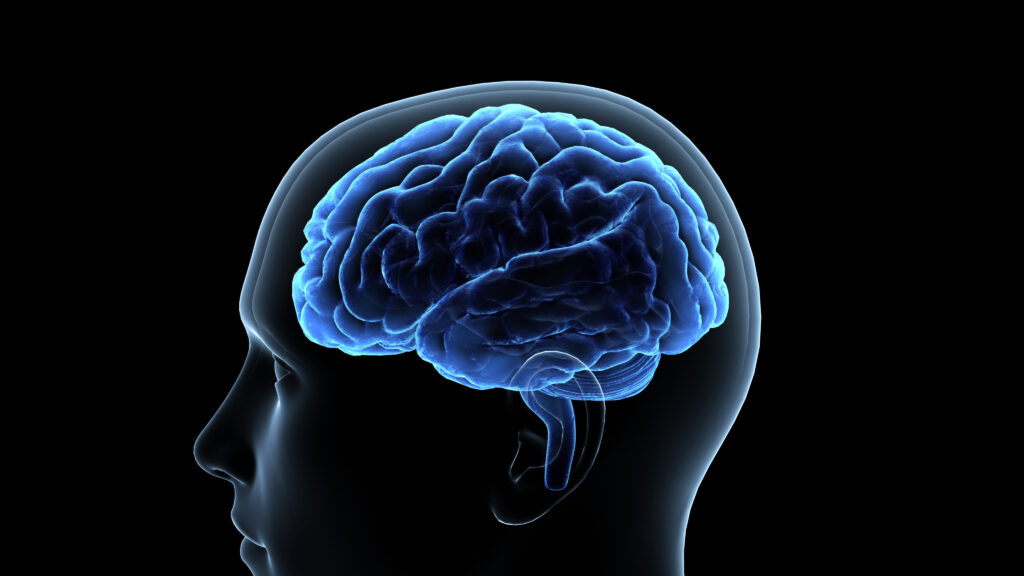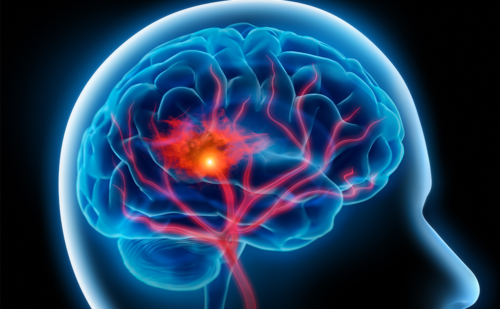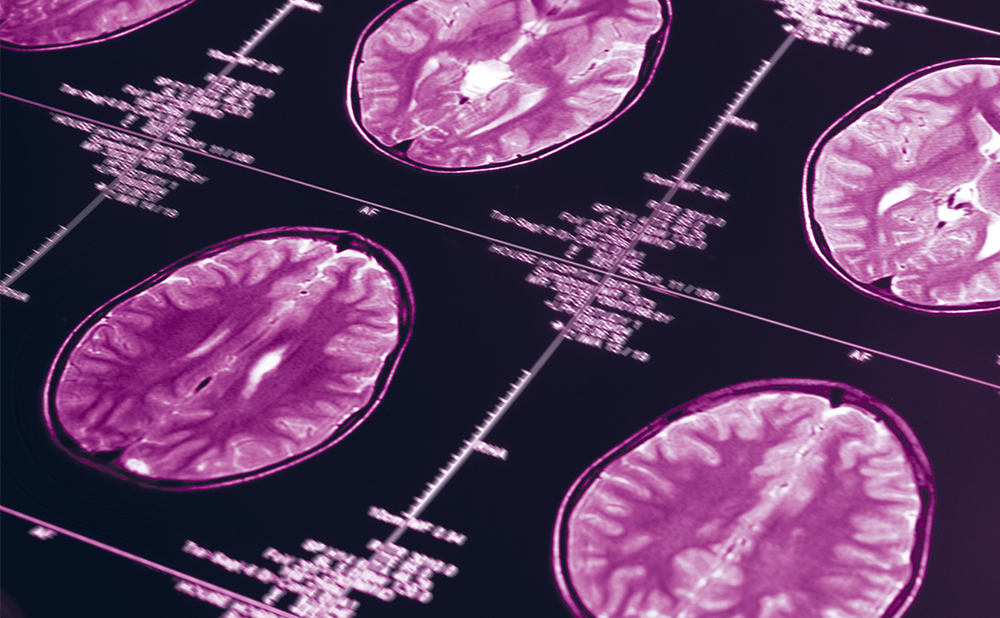Alzheimer’s disease (AD) is the most common cause of dementia. It is a progressive neurodegenerative disorder resulting in cognitive and behavioural impairment of sufficient severity to markedly interfere with social and occupational functioning. The prevalence of AD increases steadily after the age of 65, with an estimated prevalence of approximately 50% in patients aged 85 or older.1-2 Moreover, as the population ages, the proportion of the population affected by AD is predicted to increase dramatically.3 AD is not only a heavy burden for the patient but is also responsible for making the patient dependent on his family or the community.
Current pharmacotherapy is focused on delaying the symptomatic progression of AD. Although the cause of the disease remains unknown, acetylcholine deficiency, within a complex milieu of neurotransmitter changes in the brain, has been shown to play a role in AD.4-5 By inhibiting the degradation of acetylcholine released by presynaptic cholinergic neurons, cholinesterase inhibitors increase the amount of acetylcholine available for neurotransmission. Accordingly, cholinesterase inhibitors (ChEIs) have emerged as the treatment of choice for mild-to-moderate AD.
Donepezil, rivastigmine and galantamine represent the main category of ChEIs shown to be effective with an acceptable tolerability profile. Rivastigmine, donepezil and galantamine have demonstrated improvements in cognition, general clinical impression, activities of daily living (ADL) and behavioural symptoms.6 ChEIs share common cholinergic-mediated side effects. The most common cholinergic side effects include nausea, vomiting and diarrhoea; this is more common with initiation and dose titration and may lead to drug withdrawal in some cases.
However, slow titration of ChEIs to therapeutic doses may alleviate many of these symptoms since patients tend to develop tolerance to these gastrointestinal symptoms.7 Currently, there is little evidence to recommend one ChEI over another. In the mild-to-moderate AD population, ChEI therapy should be started early and there are emerging data that efficacy extends to the late stages of the disease.
Moderate-to-severe Alzheimer’s Disease
As AD progresses to the moderate-to-severe stages of the illness, patients becoming increasingly dependent on care from members of their family or care workers.
While emerging data suggest that the efficacy of the ChEIs extends to the late stages of AD, only one drug has been licensed for the treatment of moderate-to-severe AD. Memantine was recently licensed in a number of European countries for use in the moderate-to-severe AD population. It is a non-competitive antagonist at N-methyl-D-aspartate (NMDA) receptors.
Increasing evidence suggests that disturbances in glutamatergic neurotransmission contribute to the pathogenesis and cognitive deficits in AD.8 Based on this theory, memantine was studied in the treatment of AD, resulting in its approval for use in patients with moderate-to-severe AD to improve cognitive symptoms.
Two randomised placebo-controlled trials have demonstrated that memantine is moderately effective in slowing the progression of AD. In the first study, 166 nursing home patients with dementia (49% AD; 51% vascular dementia) were randomised to 10mg of memantine per day or placebo. At 12 weeks the memantine-treated patients had improved clinician’s global impression scores independent of the aetiology of dementia.9
In a pivotal study of 252 patients with moderate-to- severe AD (mini-mental state examination score (MMSE) <14), patients were randomised to either oral memantine (20mg daily) or placebo. Exclusion criteria included vascular dementia, dementia or neurological disease due to conditions other than AD and major depression. The dropout rate was 28% (42 taking placebo and 29 taking memantine), which the authors attributed to the severity of the disease stage in the study group. At 28 weeks, patients’ symptoms and condition deteriorated in both the memantine and placebo study groups; however, patients treated with memantine had better ADL function and disability scores. In the memantine group there was a significant difference in functional capacities compared to placebo (p=0.02 (95% confidence interval (CI): 0.49, 3.78)). Clinician’s impression scores were also improved in the treatment group, but this difference did not reach statistical significance (p=0.06 (95% CI: -0.05, 0.02)).10 The authors of the study acknowledged that point differences between drug- and placebo-treated patients on quantitative scales do not necessarily indicate clinically meaningful effects. Accordingly, to illustrate clinical relevance of results, response analysis (rates of individual response) is often performed. This study reported a significant difference in the predefined criterion for a response, incorporating multiple end points, with 29% of patients receiving memantine and 10% of those receiving placebo having a response (p<0.001).
In a 24-week open-label extension to the study, 175 patients were enrolled from the previous double-blind study in an outpatient setting. The patients were given 20mg memantine daily. Patients switched to memantine treatment from their previous placebo therapy experienced a significant benefit in all main efficacy assessments (functional, global and cognitive) relative to their mean rate of decline with placebo treatment during the double-blind period (p<0.05). The study provides evidence of a sustained effect of memantine over a period of 12 months.
A Cochrane review on memantine concluded that memantine has a significant effect on cognition and a possible effect on behaviour and ADL. According to the review, memantine shows efficacy in AD, vascular and mixed dementia. Further trials on larger numbers of patients and for longer periods will help to support this data.12 In clinical studies memantine was well-tolerated, without major side effects or drug-drug interactions with other commonly-used pharmacological substances. The main adverse reactions involved the central nervous system and were dose dependent.
Combination Therapy with Memantine
There has been interest in whether combinations of therapies may have additive or even synergistic effects in the treatment of AD. In a recent study, the combination of memantine and ChEI donepezil was assessed in patients with moderate-to- severe AD.13 In the study, 404 patients with moderate-to-severe AD (MMSE 5–14) who were already taking donepezil (stable dose of 5mg or 10mg) were randomised to an additional therapy with memantine (starting dose 5mg/day, increased to 20mg/day, n=203) or placebo in a blinded fashion for 24 weeks. Eighty per cent of patients completed the trial. Compared with donepezil alone, combination therapy resulted in greater symptomatic improvements in both cognitive and behavioural efficacy measures, suggesting that the complementary mechanisms of action of ChEIs and memantine have additive or synergistic potential in delaying symptomatic decline in AD.
A recent multicentre, open-label pilot study investigated whether combination therapy with rivastigmine and memantine presents unexpected safety or tolerability concerns and is beneficial in patients with mild-to-moderate AD (MMSE 10–29).14
In the study, patients with a Diagnostic and Statistical Manual of Mental Disorders (DSM)-IV diagnosis of dementia of the Alzheimer’s type (n=95), who were treated with rivastigmine (6–12mg/day) for a maximum duration of 24 weeks prior to baseline, received memantine (5–20mg/day) in combination with rivastigmine for 12 weeks. There was a statistically significant difference between baseline and week 12 for the AD Assessment Scale-cognitive subscale (ADAS-cog) total score, showing a positive effect of combination therapy. The change in ADAS-cog score observed with therapy in this study was statistically significant compared with the historical control; however, the change was less than the four-point change recommended by the US Food and Drug Administration (FDA) for clinical relevance. Combination therapy was well-tolerated by most patients.
Summary and Discussion
While the ChEIs remain the treatment of choice for mild-to-moderate AD, evidence points to the potential of memantine as a useful adjunct in later stages of the disease.
In moderate-to-severe AD, the clinical efficacy of memantine on functional (ADL) and clinical global impression of change as well as cognitive domains has been documented by two randomised placebo-controlled trials. Furthermore, responder analyses in the two studies showed a higher rate of responders for memantine than for placebo.
An important question, that is difficult to answer at the current time is when or under which conditions ChEI therapy should be discontinued. Currently, there is insufficient evidence relating to when to discontinue ChEIs as the disease advances.
The question then arises as to when memantine should be introduced into the treatment paradigm.
There is emerging evidence that introduction of memantine, alone or in combination with ChEIs, in patients diagnosed with moderate-to-severe AD or in ChEI-treated patients with deteriorating symptoms helps behavioural symptoms such as agitation, aggression and psychosis. Thus the use of memantine may improve outcomes for people with AD and reduce carer burden.
To improve the situation for the AD patient, there still need to be improvements in the awareness of the disease. Importantly, forgetfulness in old age is too often ignored as a potential symptom for AD. The most pressing issue is that forgetfulness is not necessarily age-related but disease-related in old age, and more needs to be done to improve awareness of the disease and remove the stigma associated with AD. ■














